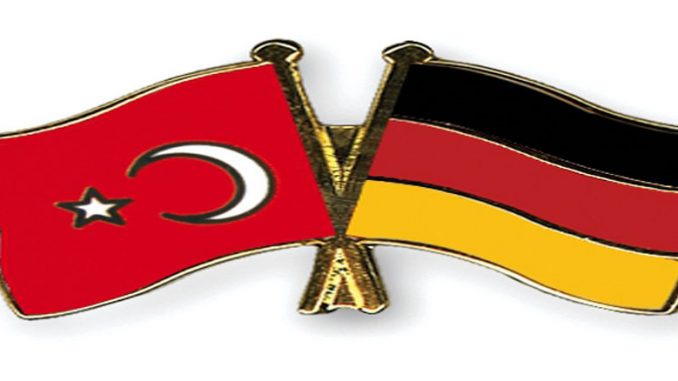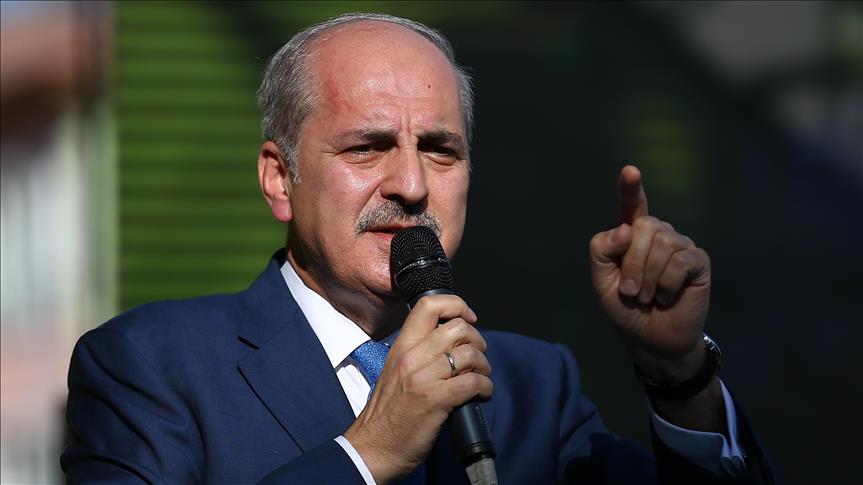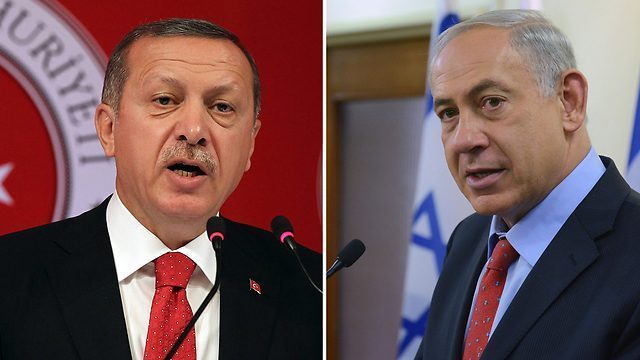
Binali Yildirim says German companies should not suffer due to tense relations
German companies working in Turkey should set themselves apart from any political tension between the two countries, Prime Minister Binali Yildirim said Thursday.
Addressing a group of German executives, Yildirim reassured them following remarks last week from German Foreign Minister Sigmar Gabriel that sought to dissuade firms from doing business in Turkey.
“It is very crucial for us that you are not part of the tension and do not suffer from it,” Yildirim said at Cankaya Palace in Ankara.
“I am saying clearly that we see you as the companies of this country.”
He added: “German companies paying a price in Turkey for the [state of] relations between the two countries is out of the question.”
Ties between the countries deteriorated significantly last week when Gabriel said the government would no longer encourage or guarantee investment in Turkey.
It was the latest in a long-running series of diplomatic incidents that has included German complaints about the arrest of its nationals on terrorism charges, the lack of access for lawmakers to German troops at Incirlik air base and claims that Turkey has carried out espionage in Germany.
Ankara has accused Germany of harbouring terrorists and criticized the government for barring Turkish politicians from addressing crowds ahead of April’s constitutional referendum.
‘Germany tensions do not affect travel to Turkey’
Tour operator Thomas Cook has said there is a continued recovery for bookings to Turkey and the resurgence in Turkey had not been affected by increased tensions with Germany.
Thomas Cook CEO Peter Fankhauser told reporters that Turkey remained attractive despite a warning by the German government for its citizens to be careful when traveling there.
Tour operators such as Thomas Cook have seen business in the Middle East and North Africa suffer in recent years as security issues deterred visitors, with travel firms laying on more holidays to the western Mediterranean to compensate.
However, this year has seen a bounce back in markets such as Turkey and Egypt, while markets such as Spain have been more thorny.
The attacks led to two years of sharp declines in tourism.
“I suppose that we are going to start during the winter season, but more towards the spring,” he said, as quoted by Reuters.
The tour operator said strong demand for summer bookings would continue into winter, adding that its full-year operating profit would be in-line with forecasts.
Profit is expected to grow 6 percent to 326 million pounds for the financial year ending on Sept. 30.
‘Demanding a speedy recovery in relations’
“We do not want any further deterioration between Turkey and Germany,” Orhan Bilen, a board member of the North Rhine-Westphalia branch of the Independent Industrialists’ and Businessmen’s Association (MUSIAD), said in an interview earlier this week.
Bilen said no one could overlook how the countries’ historic trade relations had reached “very serious numbers”.
According to recent figures, the trade volume between the countries hit $35 billion in 2016. Germany remains Turkey’s number-one export partner and number-two import partner.
The businessman said the normalization of political ties was “very important” for Turkish people who live in Germany.
“I want German politicians to give up their stubbornness, [and] I also expect it to be done in Turkey if it has to be done,” Bilen urged.
Bilen also claimed there is an increasing number of Turkish businesspeople who wish to invest in Germany.
Another Turkish businessman working in the import sector in Cologne, Mehmet Canbaz, said, German politicians seeking to increase their votes in upcoming elections had chosen to ruin ties with Turkey.
“It is not a right policy,” Canbaz said, adding that some German politicians were using Turkey as a tool in domestic politics.
“The problem between the two countries is making us businesspeople worried. There is pressure on us right now. This is reflected in the trade we did with the Germans.
“We should not interrupt our business, and explain the issues in a calm way,” he said.
Tension Since the July 15 coup attempt, nearly 4,000 FETO suspects went to Germany from Turkey and other countries, according to local media reports. Dozens of them were granted asylum by German authorities.
Despite repeated requests by Ankara to arrest terrorism suspects and return them to Turkey, German authorities have turned down these requests.
Tensions between Germany and Turkey further escalated last week after the arrest of several human rights activists in Turkey, including a German citizen, on suspicion of aiding and abetting a terrorist organization.
Angela Merkel’s government had also been critical of the pre-trial detention of Deniz Yucel, German daily Die Welt’s Istanbul correspondent who was arrested in February on suspicion of spreading terror propaganda for the PKK and inciting hatred.
Turkish officials have repeatedly underlined that the country’s judiciary is independent, and that political influence on legal procedures was out of question.



